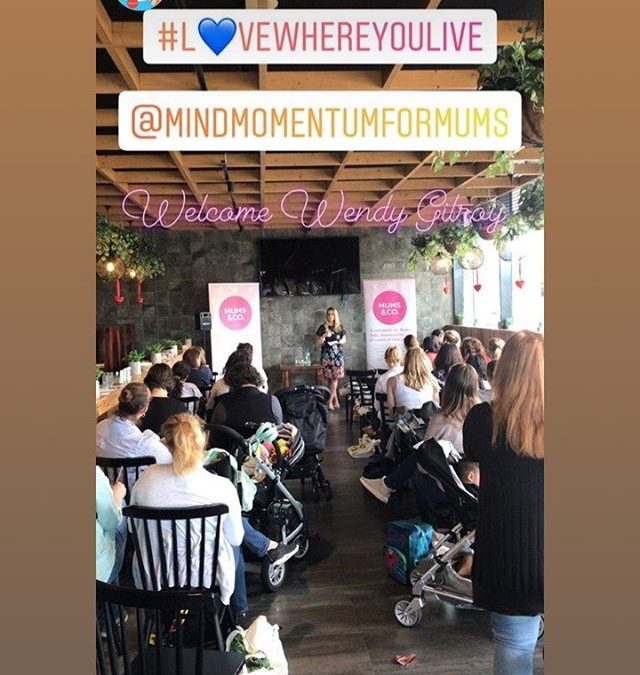4 Ways to Manage Worrying Thoughts or Fears During Pregnancy or Labour

There’s nothing quite like the worrying thoughts or fears that can run through a pregnant mama’s mind.
Although there is much excitement around having a baby, many women struggle with excessive worrying thoughts or fears around how they will handle 9 months of pregnancy (with all the changes and adjustments it brings), the intensity of labour, or with what could go wrong while giving birth.
For some women, fears around giving birth can be about having a tear and needing stitches ‘down there’.
For other women, they fear having an emergency c-section, bleeding out, requiring some kind of unwanted intervention, or worrying that they’ll feel out-of-control in the midst of agonising labour pains.
Or, it may be a concern that you’ll experience postnatal depression or anxiety.
Some women even worry about dying while giving birth.
When these thoughts are not fleeting, and they play on ‘repeat’, and they linger, or grow in a mama’s mind, this is when thoughts and worries can become problematic – leading to anxiety, panic, or other mood disorders.
When anxiety or depression occurs during pregnancy it is referred to as antenatal anxiety or antenatal depression. Up to 1 in 10 women experience antenatal depression. Anxiety is thought to be as common, and many parents experience anxiety and depression at the same time.
Whatever it is that you may be worrying about – know that you’re not alone.
Every minute, of every day, women are giving birth all around the world, in all sorts of conditions – with varying levels of support and medical intervention around them.
Birth is a natural process, and learning to trust your body is key.
Your mindset going into labour, is really important in getting you through the experience positively.
Just as in everyday life – during labour, there may be some things you can control, and others that you can’t. Sometimes, things just unfold in ways we hadn’t hoped, imagined or wanted them to.
These are just a few ideas that you, or someone you know who’s pregnant, can implement to help ease that worry or fear.
These ideas can make a real difference in the way you feel about giving birth, the relationship you have with your thoughts in anticipation of going into labour, as well as the way you cope while doing one of the most amazing and natural things on the planet.
1. Create A Birth Plan
You could create a birth plan on your own, or with the help of your partner, a midwife, obstetrician, doula or other support person. Think about the ways you’d like the birth of your baby to progress.
Your birth plan may include the following (this is a guide only):
-
How you feel about the use of pain management (including natural methods as well as drugs / other medication)
-
The lighting in the room (do you prefer bright lights or dim lights?)
-
Support person (or people) – who would you want in the room with you
-
Would you like music playing in the room
-
Would you like a birthing ball?
-
Would you like a water birth, or to use the shower?
-
Would you like photos taken in the birthing suite?
Remembering that a Birth Plan is like a ‘wish-list’ can be helpful. Sometimes we need to be flexible with our hopes and desires, and depending on the circumstances at hand, these may need to change, or other options may need to be considered.
2. Practise Pre-Natal Yoga
Prenatal yoga can be a wonderful way to care for your body and mind during pregnancy, as well as helping you to prepare for giving birth.
Prenatal yoga generally encompasses light stretching, breathing work, and centring (and calming) your mind.
Research suggests that yoga can help to:
-
Reduce stress and anxiety
-
Promote better sleep
-
Increase your strength and flexibility (which you’ll need for giving birth)
-
Decrease lower back pain, shortness of breath and headaches
Joining a prenatal yoga class may be a wonderful way to connect with other women sharing similar experiences to you – another way to enhance your emotional and social wellbeing, which can help to reduce your pregnancy or birth-related worries.
3. Build Your ‘Village’
Pregnancy is the ideal time to think about all the people in your life who you can turn to for support.
Support may be emotional, physical (particularly in the early days / weeks after giving birth for some mothers), and practical (such as cooking meals, doing the laundry or housework, helping with other children at home, etc.).
During pregnancy, many women experience symptoms of anxiety or depression. If you’re not feeling yourself, seek help or support sooner rather than later.
In this modern day and age, we often forget that it takes a village to help raise a child.
When new mums are put under stress and strain, or feel expectations to either cope on their own, or manage to take control of everything they did pre-baby, this can quickly become physically exhausting, and problematic for her emotional wellbeing.
If you’re pregnant and starting to feel overwhelmed or worried about how you’ll cope as a new mum, ensuring you have a wonderful support network in place can make a wonderful difference to how you’ll cope day-to-day
4. Talk It Out
Finding a professional you feel completely comfortable with and whom you trust, can make a wonderful difference to how you’re thinking and feeling.
This may be talking to your midwife or obstetrician about particular fears around birth (such as tearing, bleeding, or other emergency interventions that you may be worrying about). Get the facts from the experts, understand how likely it really is, that these worrying thoughts could eventuate. Knowledge is power.
If you have general worrying thoughts, or ones that relate more to the postnatal period, finding a professional counsellor could be ideal for you.
Talk therapy can make a real difference to how you’re feeling, (particularly if you’re experiencing symptoms of anxiety or depression), and how you’ll cope down the track.
You can learn evidence-based relaxation strategies that will benefit you throughout your pregnancy, birthing experience and beyond. Talk therapy can also help you to look at worries or fears from a new or more helpful point of view.
Learning to trust your body and yourself – wholeheartedly – is key to staying positive during pregnancy and birth.
Wendy

Wendy Gilroy is a Mother of 2, and a professional Counsellor for women. Wendy has a degree in Psychology, a Masters degree in Addiction Studies, and a Diploma of Counselling. She lives in Sydney, Australia, and offers secure ONLINE counselling for women around the world, as well as telephone, face-to-face and home visit services for mums.
Disclaimer: This is for information purposes only. If you have any concerns about your physical or mental health, please consult your healthcare practitioner for medical advice.






